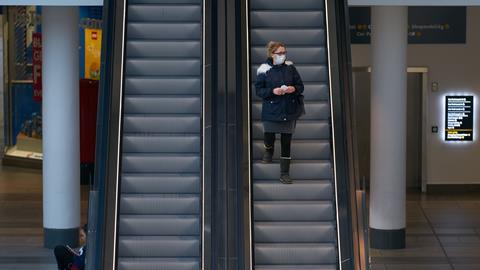On Friday 20 March, the day when the prime minister ordered the closure of all pubs, restaurants and clubs, and when nearly all solicitors were facing the most severe disruption imaginable as a result of home working, closures and sickness on account of Covid-19, the Solicitors Regulation Authority chose to publish its strategic priorities for the next three years.

Those solicitors with urgent questions about how they could ensure business continuity and regulatory compliance in the midst of a health and economic disaster will doubtless be encouraged to know that their regulatory body was, among other things, keen on ‘building the SRA’s understanding of emerging opportunities and challenges for the users of legal services, the legal sector and its role in effectively regulating it’.
To be fair, the accompanying press release had a mention of the pandemic, but only to show that ‘The events of recent weeks have shown how uncertain the future is, and how quickly new and difficult issues can emerge.’ Well, who knew?
None of this would matter if at the same time the SRA had addressed the profession with a communication about the impact of the coronavirus on their practices, as the president of the Law Society did a few days earlier, nor if its website was plastered with advice, as is the Law Society’s. Neither of these things has happened, and I have neither received a communication from the SRA nor can I find any trace of Covid-19 advice on its website.
I hear that work is ongoing to publish some frequently asked questions. Good! But when it emerges, this column will not be out-of-date, because the question remains as to why the regulator - which requires law firms to be responsible for risk management – took so long to respond with a plan or any advice for when a disaster overtook the profession for which it is responsible.
The Law Society’s website, and the Gazette itself, have been models of how to deal with a fast-changing environment. The Law Society’s dedicated Covid-19 webpage now has advice on the following, which will doubtless be supplemented by further areas in the days to come:
- employers
- firm owners, managing partners or senior leaders
- members visiting police stations, prisons or courts
- international firms
- conveyancers
- litigators
- legal aid firms
I wrote last week about how other legal professions have been dealing with the outbreak, since we can learn from them about issues which may arise here. Over the last week, while nothing has emerged from the SRA, these same professional bodies have gone much further in the assistance they are giving to their members.
The Paris Bar is a regulator, and a near neighbour. Covid-19 advice is the first thing that hits you when you open its webpage. It has issued a wide range of advice. For a start it has suspended payment of all fees to the bar, at least until the end of May.
In addition, it has issued advice that if your firm requires a lawyer to be present somewhere because it is unavoidable in the light of the facts of the case, the firm has an obligation to provide suitable transport, such as a taxi. Failure to do this, resulting in infection of the lawyer, could result in disciplinary action. In addition, suspension or termination of employment because a lawyer refuses to come into work for health reasons is null and void.
Closer to home, the Law Society of Scotland, another regulator, has also considerably expanded its own advice to its members. The link to its advice is in unmissably large font on its home page. Its watchword is that its regulatory compliance functions will be carried out proportionately in the light of the crisis.
The German Federal Bar (BRAK), another regulator, has expanded its advice since last week to guidelines, tips and articles on professional, employment, tax and health-related issues.
The American Bar Association (ABA) is not a regulator but a representative body. It has now set up a task force on Legal Needs Arising Out of the 2020 Pandemic.
This task force is not aimed specifically at helping lawyers, but assisting the public with resulting legal needs. The membership includes not just lawyers, but representatives from legal organisations, including the judiciary and bars. It will have experts in disaster response, health law, insurance, legal needs of families to protect basic human needs such as food, shelter, medical and employment benefits, together with criminal justice, domestic violence, civil rights and social justice.
So, come on SRA! It is at a time like this that the credibility and authority of all organisations is being tested. You are already dangerously late in fulfilling your responsibilities to a profession reeling from a disaster. Please don’t miss the boat altogether.
*The Law Society is keeping the coronavirus situation under review and monitoring the advice it receives from the Foreign & Commonwealth Office and Public Health England.
































6 Readers' comments